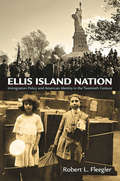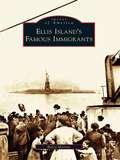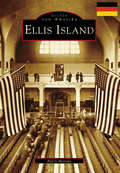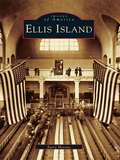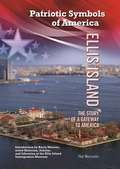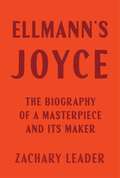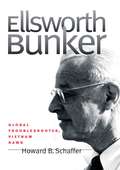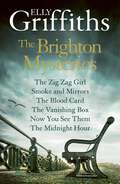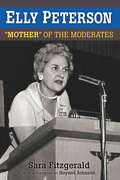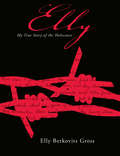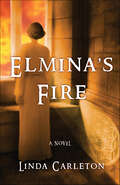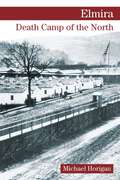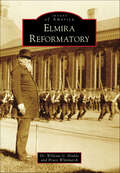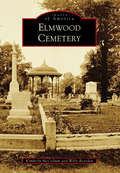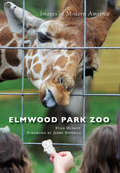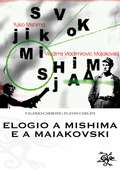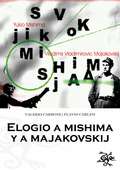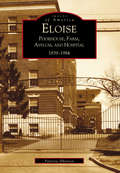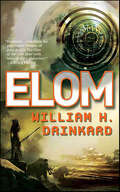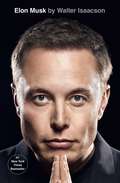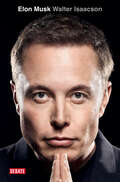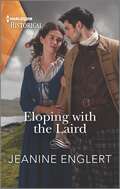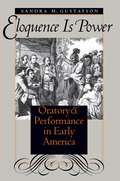- Table View
- List View
Ellis Island Nation
by Robert L. FleeglerThough debates over immigration have waxed and waned in the course of American history, the importance of immigrants to the nation's identity is imparted in civics classes, political discourse, and television and film. We are told that the United States is a "nation of immigrants," built by people who came from many lands to make an even better nation. But this belief was relatively new in the twentieth century, a period that saw the establishment of immigrant quotas that endured until the Immigrant and Nationality Act of 1965. What changed over the course of the century, according to historian Robert L. Fleegler, is the rise of "contributionism," the belief that the newcomers from eastern and southern Europe contributed important cultural and economic benefits to American society.Early twentieth-century immigrants from southern and eastern Europe often found themselves criticized for language and customs at odds with their new culture, but initially found greater acceptance through an emphasis on their similarities to "native stock" Americans. Drawing on sources as diverse as World War II films, records of Senate subcommittee hearings, and anti-Communist propaganda, Ellis Island Nation describes how contributionism eventually shifted the focus of the immigration debate from assimilation to a Cold War celebration of ethnic diversity and its benefits--helping to ease the passage of 1960s immigration laws that expanded the pool of legal immigrants and setting the stage for the identity politics of the 1970s and 1980s. Ellis Island Nation provides a historical perspective on recent discussions of multiculturalism and the exclusion of groups that have arrived since the liberalization of immigrant laws.
Ellis Island and Immigration for Kids: A History with 21 Activities (For Kids series)
by Jean DaigneauEllis Island and Immigration for Kids explores all angles of immigration and its history in the United States. Readers will learn about the establishment of Ellis Island and its forerunner, Castle Garden, as well as the western immigration station, Angel Island. Along with activities to further enrich kids' knowledge of immigration, this book gives its readers a thorough understanding of its impact on the United States from the earliest arrivals to today. Activities include instructions on writing a letter home after a journey in steerage to graphing and comparing immigrant populations since the first US census in 1790. This book will help kids gain an appreciation of immigration's impact on the United States, as well as challenge them to reflect on their own feelings about this important issue.Readers will broaden their understanding of issues that center on immigration with cross-curriculum activities, such as poetry and letter writing, graphing, and other math analyses.
Ellis Island's Famous Immigrants
by Barry MorenoSince 1776, millions of immigrants have landed at America's shores. To this day, their practical contributions are still felt in every field of endeavor, including agriculture, industry, and the service trades. But within the great immigrant waves there also came plucky and talented individualists, artists, and dreamers. Many of these exceptional folk went on to win worldly renown, and their names live on in history. Ellis Island's Famous Immigrants tells the story of some of the best known of these legendary characters and highlights their actual immigration experience at Ellis Island. Celebrities featured within its pages include such entrepreneurs as Max Factor, Charles Atlas, and "Chef Boyardee"; Hollywood icons Pola Negri, Bela Lugosi, and Bob Hope; spiritual figures Father Flanagan and Krishnamurti; authors Isaac Asimov and Kahlil Gibran; painters Arshile Gorky and Max Ernst; and sports figures Knute Rockne and Johnny Weissmuller.
Ellis Island: New Hope in a New Land
by William Jay JacobsAn inspiring chronicle of the immigrant experience recounts the history of Ellis Island from 1892 to 1954, the period during which more than seventeen million immigrants passed through its doors in search of new lives in America.
Ellis Island: Official Ellis Island Souvenir Guide (Images of America)
by Barry MorenoThe United States is considered the world's foremost refuge for foreigners, and no place in the nation symbolizes this better than Ellis Island. Through Ellis Island's halls and corridors more than twelve million immigrants-of nearly every nationality and race-entered the country on their way to new experiences in North America. With an astonishing array of nineteenth- and twentieth-century photographs, Ellis Island leads the reader through the fascinating history of this small island in New York harbor from its pre-immigration days as one of the harbor's oyster islands to its spectacular years as the flagship station of the U.S. Bureau of Immigration to its current incarnation as the National Park Service's largest museum.
Ellis Island: Official Ellis Island Souvenir Guide (Images of America)
by Barry MorenoThe United States is considered the world's foremost refuge for foreigners, and no place in the nation symbolizes this better than Ellis Island.Through Ellis Island's halls and corridors more than twelve million immigrants-of nearly every nationality and race-entered the country on their way to new experiences in North America. With an astonishing array of nineteenth- and twentieth-century photographs, Ellis Island leads the reader through the fascinating history of this small island in New York harbor from its pre-immigration days as one of the harbor's oyster islands to its spectacular years as the flagship station of the U.S. Bureau of Immigration to its current incarnation as the National Park Service's largest museum.
Ellis Island: The Story of a Gateway to America
by Hal MarcovitzBetween 1892 and 1954, more than 12 million immigrants entered the United States through the Ellis Island processing station in New York harbor. To these immigrants, Ellis Island was a symbol of the American dream--once they passed through its gates, they could start a new life with opportunities that were not available to them in their countries of origin. Today, roughly one-third of our country's population is descended from those who were processed at Ellis Island, and the facility is now a museum dedicated to American immigration.
Ellmann's Joyce: The Biography of a Masterpiece and Its Maker
by Zachary LeaderThe story of the most acclaimed literary biography of the twentieth century—an ingeniously plotted, behind-the-scenes account of how the literary critic and scholar Richard Ellmann shaped James Joyce’s reputation.Richard Ellmann’s James Joyce, published in 1959, was hailed by Anthony Burgess as “the greatest literary biography of the twentieth century.” Frank Kermode thought the book would “fix Joyce’s image for a generation,” a prediction that was if anything too cautious. The biography won the National Book Award and durably secured Joyce’s standing as a preeminent modernist.Ellmann’s Joyce provides the biography of the biography, exploring how Ellmann came to his subject, gained the cooperation of Joyce’s family and estate, shrewdly, doggedly collected vital papers and interviews, placated publishers, thwarted competitors, and carefully balanced narrative with literary analysis. Ellmann’s Joyce also removes the veil from the biographer—richly rewarded in public, admirable in private life, but also possessed of a startling secret life. An eminent biographer himself, Zachary Leader constructs a powerful argument not only in support of Ellmann’s intellectual and artistic claims but also on behalf of literary biography generally. In the process, he takes readers on a rare tour through midcentury publishing houses in New York and London, as well as the corridors and classrooms of elite universities, from Yale to Oxford. The influence of Ellmann’s book, recognized instantly, persists to this day, among literary scholars and Joyce fans alike.Filled with surprising details, tales of intrigue from the heyday of literary publishing, and intimate portraits of the Joyce and Ellmann families, Ellmann’s Joyce is as immersive as a walk around town with Leopold Bloom and as moving as the thickly drifted snow on Michael Furey’s grave.
Ellsworth Bunker
by Howard B. SchafferIn this first biography of Ellsworth Bunker (1894-1984), Howard Schaffer traces the life of one of postwar America's foremost diplomats from his formative years as a successful businessman and lobbyist through a long career in international affairs.Named ambassador to Argentina by Harry Truman in 1951, Bunker went on to serve six more presidents as ambassador to Italy, India, Nepal, and Vietnam and on special negotiating missions. A widely recognized "hawk," Bunker helped shape U.S. policy in Vietnam during his six-year Saigon posting. Using letters Bunker wrote to his wife as well as recently declassified messages he exchanged with Henry Kissinger, Schaffer examines how Bunker promoted the war effort and how he regarded his mission. After leaving Saigon on his seventy-ninth birthday, Bunker next became a key figure in the treaty negotiations, spanning three presidencies, that radically changed the operation and defense of the Panama Canal.Highlighting Bunker's views on the craft of diplomacy, Schaffer paints a complex picture of a man who devoted three decades to international affairs and sheds new light on post-World War II American diplomacy.This book is part of the ADST-DACOR Diplomats and Diplomacy Series, co-sponsored by the Association for Diplomatic Studies and Training in Arlington, Virginia, and Diplomatic & Consular Officers, Retired, Inc., of Washington, D.C.
Elly Griffiths: The Brighton Mysteries Books 1 to 6
by Elly GriffithsSet in atmospheric post-war Brighton, read all six books in the Brighton Mysteries in one great-value volume. From the author of the bestselling Dr Ruth Galloway Mysteries. Meet Detective Inspector Edgar Stephens and his old comrade, magician Max Mephisto. Edgar and Max served together during the war as a part of a shadowy unit called the Magic Men. Now the fighting is over, the two men are brought together when a magic trick ends in murder.Join Stephens and Mephisto as they investigate a variety of cases, featuring murdered theatre impresarios, missing children and anarchist plots.Fans of Agatha Christie will love these historical murder mysteries for their gripping plots and brilliant combination of murder, mystery and magic. Praise for the Brighton Mysteries'Subtle, charming and very good' Daily Mail'Original, lively and gripping' Independent'Recalls the best of Agatha Christie' Sunday Express'Well-written and well-researched' Literary Review 'Full of period detail, smart plotting and likable characters' Mail on Sunday
Elly Peterson: "Mother" of the Moderates
by Sara Fitzgerald"A magisterially written, well-researched, informative, and entertaining biography of a woman who helped throw open the doors to broader participation and power for women in the Republican Party and American politics. "--Dave Dempsey, author of William G. Milliken : Michigan's Passionate Moderate. Elly Peterson was one of the highest ranking women in the Republican Party. In 1964 she ran for a Michigan seat in the U. S. Senate and became the first woman to serve as chair of the Michigan Republican Party. During the 1970s she grew disenchanted with the increasing conservatism of her party, united with other feminists to push for the Equal Rights Amendment and reproductive choice, battled Phyllis Schlafly to wrest control from her of the National Federation of Republican Women, and became an independent. Elly Peterson's story is a missing chapter in the political history of Michigan, as well as the United States. This new biography, written by Sara Fitzgerald (a Michigan native and former Washington Post editor), finally gives full credit to one of the first female political leaders in this country. When Peterson retired in 1970 as assistant chairman of the Republican National Committee, David Broder of the Post wrote that her abilities would have earned her the national chairmanship were it not for the unwritten sex barrier that both parties have erected around that job. "--
Elly: My True Story of the Holocaust
by Elly Berkovits GrossTold in short, gripping chapters, this is an unforgettable true story of survival. The author was featured in Steven Spielberg's Survivors of the Shoah Visual History Foundation.At just 15, her mother, and brother were taken from their Romanian town to the Auschwitz-II/Birkenau concentration camp. When they arrived at Auschwitz, a soldier waved Elly to the right; her mother and brother to the left. She never saw her family alive again. Thanks to a series of miracles, Elly survived the Holocaust. Today she is dedicated to keeping alive the stories of those who did not. Elly appeared on CBS's 60 Minutes for her involvement in bringing an important lawsuit against Volkswagen, whose German factory used her and other Jews as slave laborers.
Elmina's Fire: A Novel
by Linda CarletonWhat happens when a troubled young woman dares to follow the stirrings of her soul in turbulent times? Elmina begins life with a troubled childhood in a medieval French town—a childhood that turns her into a spiritually seeking young woman who dares to follow the stirrings of her soul. Her idealism and love lead her to leave a Cathar school and follow the man who will become Saint Dominic. As the world around her erupts into the Albigensian Crusade, Elmina finds herself complicit in its horror, and her spiritual and emotional life begins to unravel. With the aid of the counsel of her wise prior, Brother Noel, Elmina learns to paint her experiences within a sacred circle—a practice that helps her discover the origins of her lifelong fears and wrestle with questions that are as divisive today as they were eight centuries ago: the nature of God, the purpose of creation, the nature of evil, and the possibility of reincarnation.
Elmira
by Michael HoriganClearly, something went wrong in Elmira. Drawing on ten years of research, this book traces the story of what happened.
Elmira Reformatory: Innovations In The Administration Of An American Penal Institution (Images of America)
by Bruce Whitmarsh William G. HinkleDiscover the activities and work carried on inside the Elmira Reformatory and the evolution of the criminal reform model through the lens of vintage images.The Elmira Reformatory, established in 1876 in Elmira, New York, was a testament to the most interesting, most scientific, and most hopeful treatment of the convicted criminal that has ever been tried in the United States. It conformed to what were considered sound theories, and the results were good beyond all expectations. Its inception was due to the genius and experience of Zebulon R. Brockway, who had practical training in prison management and was profoundly acquainted with the nature of the lawbreaking class of the 19th century. Elmira Reformatory contains images of the work done at Elmira in the late 19th and early 20th centuries. It is a compelling view of the activities carried on inside the reformatory and the evolution of the criminal reform model.
Elmwood Cemetery (Images of America)
by Kimberly Mccollum Willy BeardenElmwood Cemetery was founded in August 1852 by 50 prominent Memphians who resolved to create a new burial site just two and a half miles outside the city limits. The name of the cemetery was drawn out of a hat by one of the founding fathers. A nurseryman from Scotland was hired to lay out the grounds, and Elmwood was opened to people from all backgrounds to use as their family cemetery. Elmwood has survived wars, military occupation, epidemic disease, and the bankruptcy and near collapse of Memphis, only to emerge as one of the premier outdoor museums in the United States. Its massive collection of Victorian memorial statuary is almost unrivaled, but Elmwood�s true allure lies in the stories of those who rest beneath the lush canopy of trees on its 80 acres. The graves at Elmwood belong to soldiers and statesmen, scoundrels and scalawags, writers and musicians, martyrs and madams, the notorious and the anointed, and so many more.
Elmwood Park Zoo (Images of Modern America)
by Jerry Spinelli Stan HuskeyElmwood Park Zoo was established in 1924 when roughly 16 acres of land and a small group of animals were donated to the borough of Norristown. Although the early years of the zoo were more akin to a small farm, it has gone through an extensive expansion during the past few decades. This expansion and the continued revitalization of Elmwood Park Zoo include some notable residents, such as the zoo's owl, who has become the mascot of Temple University, and its bald eagle, a sideline regular for the NFL's Philadelphia Eagles. The zoo today, with new features including a zip line and a giraffe exhibit, looks to the future, with plans for even more exhibits, a new restaurant, and an additional 20 acres yet to be developed.
Elogio a Mishima e a Maiakovski
by Valerio Carbone; Flavio Carlini António Roxo LeãoO livro inclui quatro textos de ficção sobre a vida e a morte de Yukio Mishima e de Vladimir Maiakovski, todos cobrindo a vasta gama de conflito interior de ambos os personagens e envolvendo as circunstâncias que conduziram aos seus suicídios.
Elogio a Mishima y a Majakovskij
by Valerio Carbone; Flavio Carlini Sara MiñanaNo es una evaluación técnica de las figuras históricas de Yukio Mishima y Vladimir Majakovskj, sino una narración de cuatro historias. Este libro no quiere exhibir biografías simples, más bien utiliza las ideas recibidas de las lecturas de las obras de estos dos autores, tan distantes y cercanas a la vez, extremadamente polémicas y fascinantes a su manera, para analizar de forma crítica, a través de la literatura, la relación entre individuo y sociedad, la fricción del individuo hacia el conformismo y la emancipación, la soledad y el orgullo, la ferocidad de la vida y la muerte.
Eloise: Poorhouse, Farm, Asylum and Hospital 1839-1984 (Images of America)
by Patricia IbbotsonEloise, which started out as a poorhouse, later became known as Wayne County General Hospital. From only 35 residents on 280 acres in 1839, the complex grew dramatically after the Civil War until the total land involved was 902 acres and the total number of patients was about 10,000. Today, all that remains are five buildings and a smokestack. Only one of them, the Kay Beard Building, is currently used.In Eloise: Poorhouse, Farm, Asylum, and Hospital, 1839-1984, this institution and medical center that cared for thousands of people over the years, is brought back to life. The book, in over 220 historic photographs, follows the facility's roots, from its beginnings as a poorhouse, to the founding of its psychiatric division and general hospital. The reader will also be able to trace the changing face of psychiatric care over the years. The book effectively captures what it was like to live, work, and play on Eloise's expansive grounds.
Elom
by William H. DrinkardFire from the Goddess and the meat and furs of the mammoth are all that the People need to live. It is a harsh life but a good one and it is one that all cherish.Young Geerna knows that the time has come for her to become a woman and take up the tasks to keep her people safe. She waits in the Awakening Place, fearful and hopeful as her ordeals come to an end. Then, on the eve of her Womanhood, a shining light descends upon her and her world is torn asunder. And she embarks on a journey that none of her people could ever envision...Eons have passed. Cycle upon cycle the Way of the People have remain unchanged: women are artists, men are hunters. Geerna's Law is the covenant by which humans live in harmony and peace. But all is about to change. A call has come for The People to choose their champions, and a summons to meet the mysterious creatures who selected Geerna so long ago.All is unknown. As the brave souls who are chosen venture forth, they will come to discover just how much that pact that Geerna made so long ago has cost them. And they will have to confront the choices that might help them to finally know true freedom.At the Publisher's request, this title is being sold without Digital Rights Management Software (DRM) applied.
Elon Musk
by Walter IsaacsonThe #1 New York Times and global bestseller from Walter Isaacson—the acclaimed author of Steve Jobs, Einstein: His Life and World, Benjamin Franklin, and Leonardo da Vinci—is the astonishingly intimate story of the most fascinating, controversial innovator of modern times. For two years, Isaacson shadowed Elon Musk as he executed his vision for electric vehicles at Tesla, space exploration with SpaceX, the AI revolution, and the takeover of Twitter and its conversion to X. The result is the definitive portrait of the mercurial pioneer that offers clues to his political instincts, future ambitions, and overall worldview. When Elon Musk was a kid in South Africa, he was regularly beaten by bullies. One day a group pushed him down some concrete steps and kicked him until his face was a swollen ball of flesh. He was in the hospital for a week. But the physical scars were minor compared to the emotional ones inflicted by his father, an engineer, rogue, and charismatic fantasist. His father&’s impact on his psyche would linger. He developed into a tough yet vulnerable man-child, prone to abrupt Jekyll-and-Hyde mood swings, with an exceedingly high tolerance for risk, a craving for drama, an epic sense of mission, and a maniacal intensity that was callous and at times destructive. At the beginning of 2022—after a year marked by SpaceX launching thirty-one rockets into orbit, Tesla selling a million cars, and him becoming the richest man on earth—Musk spoke ruefully about his compulsion to stir up dramas. &“I need to shift my mindset away from being in crisis mode, which it has been for about fourteen years now, or arguably most of my life,&” he said. It was a wistful comment, not a New Year&’s resolution. Even as he said it, he was secretly buying up shares of Twitter, the world&’s ultimate playground. Over the years, whenever he was in a dark place, his mind went back to being bullied on the playground. Now he had the chance to own the playground. For two years, Isaacson shadowed Musk, attended his meetings, walked his factories with him, and spent hours interviewing him, his family, friends, coworkers, and adversaries. The result is the revealing inside story, filled with amazing tales of triumphs and turmoil, that addresses the question: are the demons that drive Musk also what it takes to drive innovation and progress?
Elon Musk (edición en español)
by Walter IsaacsonDel autor de Steve Jobs y otras grandes biografías, todas ellas éxitos internacionales de ventas, esta es la historia asombrosamente íntima del innovador más fascinante y polémico del mundo, un visionario que ha roto todos los moldes y ha conducido al mundo a la era de los vehículos eléctricos, la exploración espacial privada y la inteligencia artificial. Ah, y el mismo que compró Twitter.Cuando Elon Musk era un niño en Sudáfrica, sufría a menudo acoso escolar. Un día un grupo de niños lo empujó por unas escaleras de hormigón y le patearon hasta que su cara se hinchó como una pelota. Pasó una semana en el hospital. Pero las cicatrices físicas fueron insignificantes comparadas con las emocionales, las que le había causado su padre, un canalla, ingeniero carismático y fantasioso. Cuando Elon llegó a casa tras ser dado de alta del hospital, su padre le reprendió. «Tuve que escucharlo durante una hora mientras me gritaba, me llamaba idiota y me decía que era un inútil», recuerda. El impacto psicológico que su padre le causó perduró. Se convirtió en un joven fuerte pero vulnerable al mismo tiempo, propenso a bruscos cambios de humor -a lo Jekyll y Hyde-, con una gran tolerancia al riesgo, ansias de drama, un épico sentido de misión y una intensidad maníaca, cruel y a veces destructiva.A principios de 2022, después de un año marcado por el lanzamiento de treinta y un satélites de SpaceX, la venta de un millón de coches de Tesla y de convertirse en el hombre más rico de la tierra, Musk confesó con arrepentimiento su impulso por provocar el drama. «Necesito cambiar mi forma de pensar para que deje de estar en modo crisis, como lo he estado en los últimos catorce años, o probablemente toda mi vida», explicó.Fue un comentario melancólico, no un propósito de año nuevo. Cuando hizo la promesa, estaba comprando en secreto acciones de Twitter, el patio de recreo por excelencia. Con los años, cuando se encontraba en un momento difícil, se veía transportado de nuevo al acoso que sufrió en el patio del colegio. Ahora tenía la oportunidad de poseerlo. Durante dos años, Isaacson fue la sombra de Musk, asistió a sus reuniones, recorrió juntos sus fábricas, y pasó horas entrevistándolo a él, a su familia, amigos, compañeros y adversarios. El resultado es un relato íntimo y revelador, repleto de historias asombrosas, triunfos y perturbaciones, que aborda la pregunta: ¿son los demonios que mueven a Musk también lo que se necesita para impulsar la innovación y el progreso?
Eloping with the Laird (Falling for a Stewart #1)
by Jeanine EnglertA man she can trust…With her life…and her heart? Ordered by her father to choose a husband by the end of the Highland Games—or he will select one for her—widow Moira Fraser hastily elopes with Rory McKenna, Laird of Blackmore. But they soon discover neither is free of the past. Rory has a price on his head and needs an heir as soon as possible, and Moira&’s horrible first marriage has left her afraid of letting her new husband get close… From Harlequin Historical: Your romantic escape to the past.
Eloquence Is Power
by Sandra M. GustafsonOratory emerged as the first major form of verbal art in early America because, as John Quincy Adams observed in 1805, "eloquence was POWER." In this book, Sandra Gustafson examines the multiple traditions of sacred, diplomatic, and political speech that flourished in British America and the early republic from colonization through 1800. She demonstrates that, in the American crucible of cultures, contact and conflict among Europeans, native Americans, and Africans gave particular significance and complexity to the uses of the spoken word. Gustafson develops what she calls the performance semiotic of speech and text as a tool for comprehending the rich traditions of early American oratory. Embodied in the delivery of speeches, she argues, were complex projections of power and authenticity that were rooted in or challenged text-based claims of authority. Examining oratorical performances as varied as treaty negotiations between native and British Americans, the eloquence of evangelical women during the Great Awakening, and the founding fathers' debates over the Constitution, Gustafson explores how orators employed the shifting symbolism of speech and text to imbue their voices with power.
